-
 bitcoin
bitcoin $87959.907984 USD
1.34% -
 ethereum
ethereum $2920.497338 USD
3.04% -
 tether
tether $0.999775 USD
0.00% -
 xrp
xrp $2.237324 USD
8.12% -
 bnb
bnb $860.243768 USD
0.90% -
 solana
solana $138.089498 USD
5.43% -
 usd-coin
usd-coin $0.999807 USD
0.01% -
 tron
tron $0.272801 USD
-1.53% -
 dogecoin
dogecoin $0.150904 USD
2.96% -
 cardano
cardano $0.421635 USD
1.97% -
 hyperliquid
hyperliquid $32.152445 USD
2.23% -
 bitcoin-cash
bitcoin-cash $533.301069 USD
-1.94% -
 chainlink
chainlink $12.953417 USD
2.68% -
 unus-sed-leo
unus-sed-leo $9.535951 USD
0.73% -
 zcash
zcash $521.483386 USD
-2.87%
How to find the best buying point for the TRIX indicator? What indicators to combine to confirm?
Use TRIX indicator to find buying points by looking for positive crossovers, bullish divergence, and oversold conditions, confirmed with SMA, EMA, RSI, and Bollinger Bands.
May 22, 2025 at 05:00 am
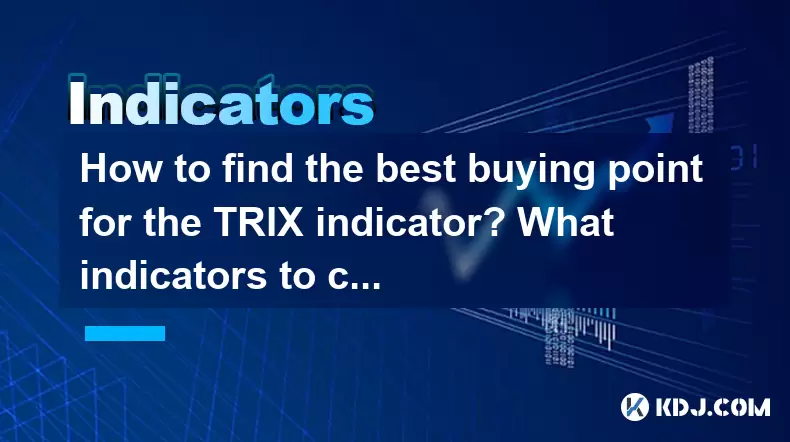
The TRIX (Triple Exponential Average) indicator is a momentum oscillator used by traders to identify overbought or oversold conditions in the market, as well as to generate buy and sell signals. Finding the best buying point using the TRIX indicator involves understanding its mechanics and combining it with other technical indicators to confirm the signals. In this article, we will explore how to effectively use the TRIX indicator to find optimal buying points and what other indicators can be used to enhance your trading strategy.
Understanding the TRIX Indicator
The TRIX indicator is calculated using a triple-smoothed exponential moving average of the closing price. It helps filter out minor price fluctuations and focuses on the underlying trend. The TRIX line oscillates around a zero line, with positive values indicating bullish momentum and negative values indicating bearish momentum.
To use the TRIX indicator effectively, you need to understand its key components:- TRIX Line: The main line that oscillates around zero.
- Signal Line: A moving average of the TRIX line, typically a 9-period simple moving average.
- Divergence: The difference between the price action and the TRIX line can signal potential reversals.
Identifying Buying Points with the TRIX Indicator
Finding the best buying point using the TRIX indicator involves looking for specific patterns and signals. Here are the key steps to identify potential buying points:
Positive Crossover: A buy signal is generated when the TRIX line crosses above the signal line. This indicates a shift from bearish to bullish momentum.
Bullish Divergence: If the price is making lower lows while the TRIX is making higher lows, it suggests that the downward momentum is weakening, and a reversal might be imminent.
Oversold Conditions: When the TRIX line moves into negative territory and reaches extreme lows, it may indicate that the asset is oversold and due for a potential upward correction.
Combining TRIX with Other Indicators
To increase the reliability of your trading signals, it's essential to combine the TRIX indicator with other technical indicators. Here are some indicators that can complement the TRIX and confirm buying points:
Moving Averages
Moving averages can help confirm trends identified by the TRIX. Here's how you can use them:
Simple Moving Average (SMA): A 50-day or 200-day SMA can help identify the overall trend. If the price is above the SMA and the TRIX generates a buy signal, it increases the likelihood of a successful trade.
Exponential Moving Average (EMA): A shorter-term EMA, such as a 12-day or 25-day EMA, can be used to confirm short-term trends. A buy signal from the TRIX combined with the price being above the EMA can provide a strong confirmation.
Relative Strength Index (RSI)
The RSI is another momentum oscillator that can be used to confirm TRIX signals:
Overbought/Oversold Levels: The RSI ranges from 0 to 100. A reading below 30 indicates oversold conditions, while a reading above 70 indicates overbought conditions. If the TRIX generates a buy signal and the RSI is below 30, it can confirm the potential for an upward move.
Divergence: Similar to the TRIX, RSI divergence can also signal potential reversals. If the price is making lower lows while the RSI is making higher lows, it can confirm a bullish divergence identified by the TRIX.
Bollinger Bands
Bollinger Bands can provide additional context to the TRIX signals:
Price Touching the Lower Band: If the price touches the lower Bollinger Band and the TRIX generates a buy signal, it can indicate that the price is at a potential support level and may reverse upward.
Bandwidth Expansion: If the Bollinger Bands are expanding, it suggests increased volatility, which can be a precursor to a significant price move. Combining this with a TRIX buy signal can enhance the confidence in the trade.
Practical Example of Using TRIX and Other Indicators
Let's walk through a practical example of how to find a buying point using the TRIX indicator and confirm it with other indicators:
Step 1: Identify a potential buying point using the TRIX indicator. Look for a positive crossover of the TRIX line above the signal line or a bullish divergence.
Step 2: Confirm the trend using a moving average. Ensure that the price is above a longer-term SMA or EMA.
Step 3: Check the RSI for oversold conditions or bullish divergence. A reading below 30 or a bullish divergence can confirm the TRIX signal.
Step 4: Use Bollinger Bands to identify potential support levels. If the price is touching the lower band, it can further validate the buying point.
Here's an example scenario:
- The TRIX line crosses above the signal line, indicating a potential buy signal.
- The price is above the 50-day SMA, confirming an uptrend.
- The RSI is below 30, indicating oversold conditions.
- The price touches the lower Bollinger Band, suggesting a potential support level.
In this scenario, all indicators align to confirm a strong buying point.
Setting Up Your Trading Platform
To effectively use the TRIX indicator and combine it with other indicators, you need to set up your trading platform correctly. Here's how to do it:
- Adding the TRIX Indicator:
- Open your trading platform (e.g., MetaTrader 4 or TradingView).
- Navigate to the indicators section and search for 'TRIX.'
- Add the TRIX indicator to your chart and adjust the period as needed (typically 14 periods).
- Adding Complementary Indicators:
- Add a 50-day SMA or 200-day SMA to your chart.
- Add a 12-day or 25-day EMA to confirm short-term trends.
- Add the RSI indicator with a period of 14.
- Add Bollinger Bands with a 20-day period and 2 standard deviations.
- Configuring the Chart:
- Ensure all indicators are visible on the chart and adjust the colors and styles for clarity.
- Use different timeframes (e.g., daily, 4-hour, 1-hour) to confirm signals across multiple periods.
Frequently Asked Questions
Q1: Can the TRIX indicator be used for short-term trading?Yes, the TRIX indicator can be used for short-term trading by adjusting the period to a shorter timeframe. For example, using a 9-period TRIX instead of the standard 14-period can make the indicator more responsive to short-term price movements. However, combining it with other short-term indicators like the 12-day EMA and RSI can provide more reliable signals.
Q2: How do I know if the TRIX signal is a false positive?False positives can occur with any indicator, including the TRIX. To minimize the risk of false positives, always confirm TRIX signals with other indicators such as moving averages, RSI, and Bollinger Bands. Additionally, using multiple timeframes can help validate signals. If the TRIX signal is not confirmed by other indicators or across different timeframes, it might be a false positive.
Q3: What is the best timeframe to use the TRIX indicator?The best timeframe for using the TRIX indicator depends on your trading style. For long-term trading, daily or weekly charts are suitable. For short-term trading, 4-hour or 1-hour charts can be more effective. It's crucial to test the TRIX indicator on different timeframes to find what works best for your strategy.
Q4: Can the TRIX indicator be used for cryptocurrencies other than Bitcoin?Yes, the TRIX indicator can be applied to any cryptocurrency. The principles of using the TRIX to identify buying points and combining it with other indicators remain the same across different cryptocurrencies. However, due to the high volatility in altcoins, it's essential to adjust the indicator settings and confirm signals more rigorously.
Disclaimer:info@kdj.com
The information provided is not trading advice. kdj.com does not assume any responsibility for any investments made based on the information provided in this article. Cryptocurrencies are highly volatile and it is highly recommended that you invest with caution after thorough research!
If you believe that the content used on this website infringes your copyright, please contact us immediately (info@kdj.com) and we will delete it promptly.
- Trump's Fed Chair Pick: Kevin Warsh Steps Up, Wall Street Watches
- 2026-01-30 22:10:06
- Bitcoin's Digital Gold Dream Tested As Market Shifts And New Cryptocurrencies Catch Fire
- 2026-01-30 22:10:06
- Binance Doubles Down: SAFU Fund Shifts Entirely to Bitcoin, Signaling Deep Conviction
- 2026-01-30 22:05:01
- Chevron's Q4 Results Show EPS Beat Despite Revenue Shortfall, Eyes on Future Growth
- 2026-01-30 22:05:01
- Bitcoin's 2026 Mega Move: Navigating Volatility Towards a New Era
- 2026-01-30 22:00:01
- Cardano (ADA) Price Outlook: Navigating the Trenches of a Potential 2026 Bear Market
- 2026-01-30 22:00:01
Related knowledge
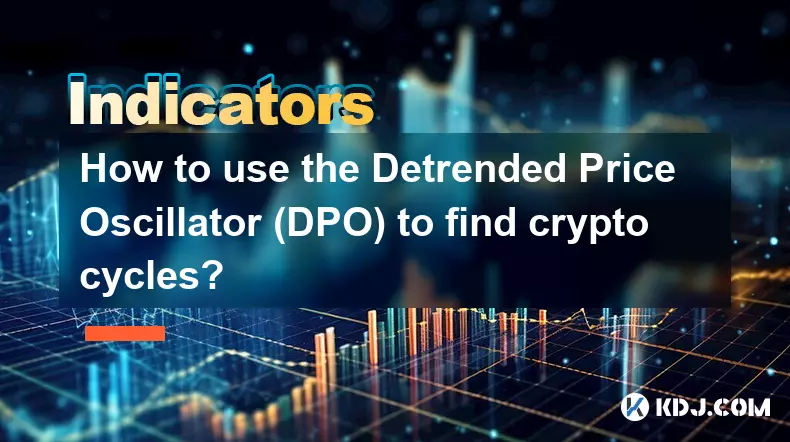
How to use the Detrended Price Oscillator (DPO) to find crypto cycles?
Jan 22,2026 at 02:59am
Understanding the Detrended Price Oscillator1. The Detrended Price Oscillator removes long-term price trends to highlight shorter-term cycles in crypt...
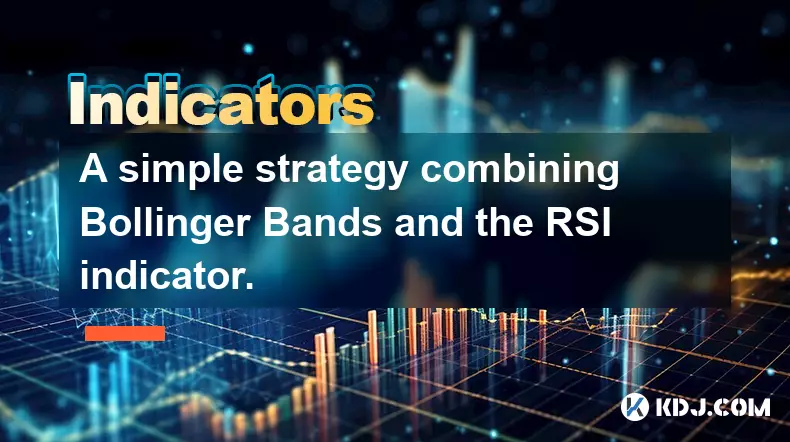
A simple strategy combining Bollinger Bands and the RSI indicator.
Jan 25,2026 at 12:39pm
Bollinger Bands Fundamentals1. Bollinger Bands consist of a middle band, typically a 20-period simple moving average, and two outer bands placed two s...
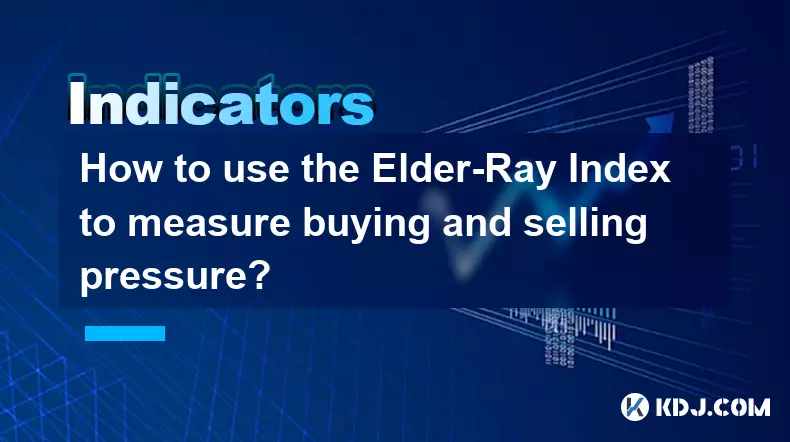
How to use the Elder-Ray Index to measure buying and selling pressure?
Jan 25,2026 at 11:59pm
Understanding the Elder-Ray Index Components1. The Elder-Ray Index consists of two distinct lines: Bull Power and Bear Power, both derived from the di...
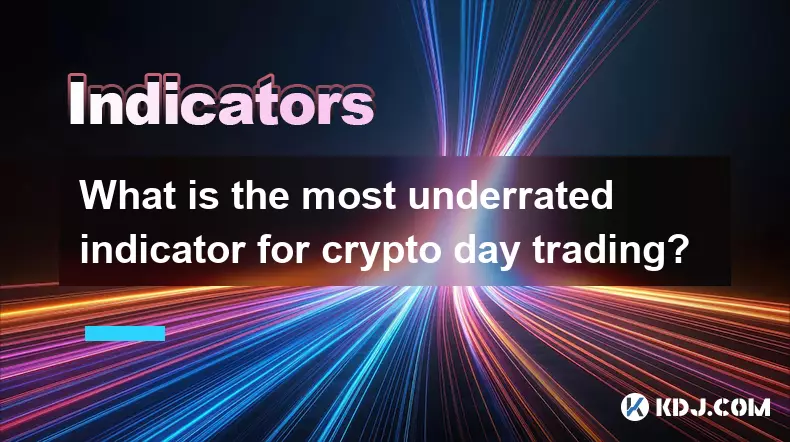
What is the most underrated indicator for crypto day trading?
Jan 19,2026 at 03:40am
Volume Profile Analysis1. Volume Profile maps trading activity across price levels rather than time, revealing where the majority of buying and sellin...
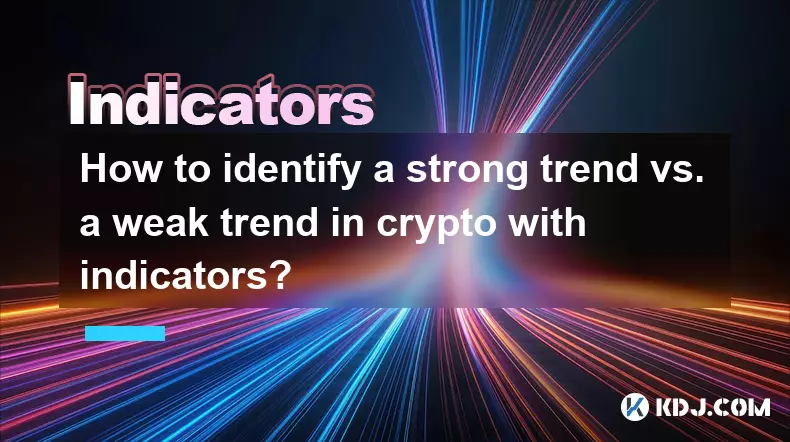
How to identify a strong trend vs. a weak trend in crypto with indicators?
Jan 18,2026 at 10:00pm
Understanding Trend Strength Through Moving Averages1. A strong trend often shows price consistently trading above the 200-day moving average in an up...
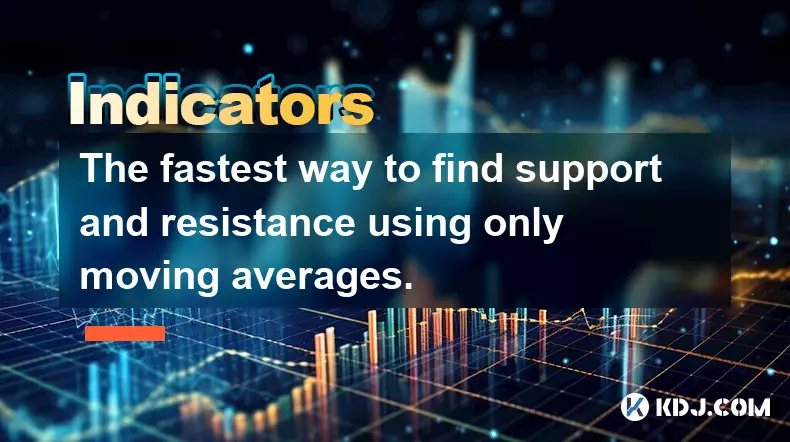
The fastest way to find support and resistance using only moving averages.
Jan 24,2026 at 11:20pm
Identifying Dynamic Support and Resistance Zones1. Traders in the cryptocurrency market frequently rely on moving averages to locate areas where price...

How to use the Detrended Price Oscillator (DPO) to find crypto cycles?
Jan 22,2026 at 02:59am
Understanding the Detrended Price Oscillator1. The Detrended Price Oscillator removes long-term price trends to highlight shorter-term cycles in crypt...

A simple strategy combining Bollinger Bands and the RSI indicator.
Jan 25,2026 at 12:39pm
Bollinger Bands Fundamentals1. Bollinger Bands consist of a middle band, typically a 20-period simple moving average, and two outer bands placed two s...

How to use the Elder-Ray Index to measure buying and selling pressure?
Jan 25,2026 at 11:59pm
Understanding the Elder-Ray Index Components1. The Elder-Ray Index consists of two distinct lines: Bull Power and Bear Power, both derived from the di...

What is the most underrated indicator for crypto day trading?
Jan 19,2026 at 03:40am
Volume Profile Analysis1. Volume Profile maps trading activity across price levels rather than time, revealing where the majority of buying and sellin...

How to identify a strong trend vs. a weak trend in crypto with indicators?
Jan 18,2026 at 10:00pm
Understanding Trend Strength Through Moving Averages1. A strong trend often shows price consistently trading above the 200-day moving average in an up...

The fastest way to find support and resistance using only moving averages.
Jan 24,2026 at 11:20pm
Identifying Dynamic Support and Resistance Zones1. Traders in the cryptocurrency market frequently rely on moving averages to locate areas where price...
See all articles










































































